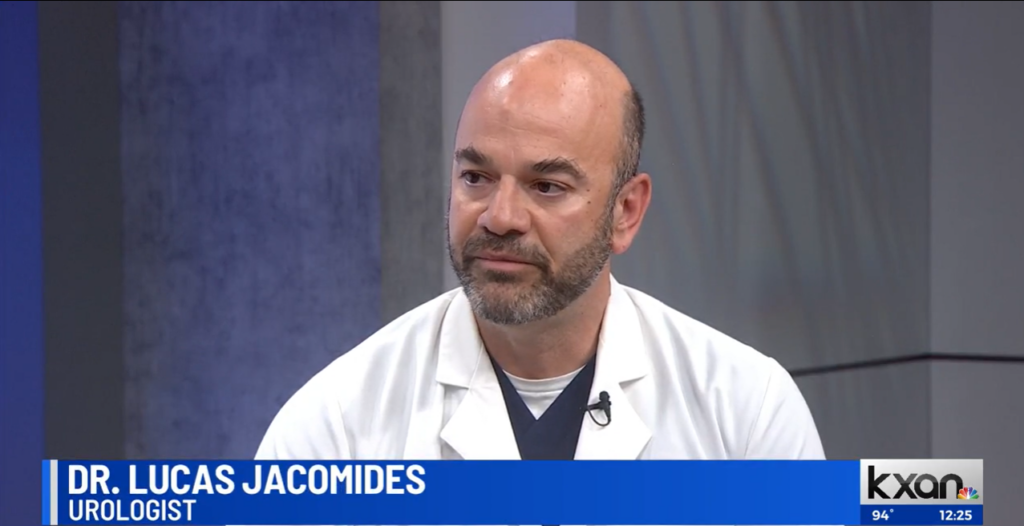
Delayed or Absent Orgasm
In the category of erectile dysfunction (ED) issues, which account for a large portion of the reasons patients come to see us, one particular ailment is quite common. Delayed or absent orgasm — or absent ejaculation — can be troubling for many men and can seriously impact their intimate relationships. There are a variety of causes and contributing factors to this issue, and there are nuances within the diagnosis itself. Read on to learn more about this condition.
What Is Delayed or Absent Orgasm?
Delayed or absent orgasm in men could mean one of the following:
- A man is unable to reach orgasm at all
- A man is able to reach orgasm only after at least 30 minutes of sexual penetration
- A man is able to reach orgasm but does not ejaculate — or emit semen from the tip of the penis — during climax
Some men experience delayed or absent orgasm all the time, whether through solo masturbation or through any type of stimulation with a sexual partner. Others experience this issue only during sexual activity with a partner but can climax and ejaculate normally when masturbating alone. Occasionally, men are unable to orgasm or ejaculate during intercourse, but are able to climax during other types of stimulation, such as oral or anal intercourse.
Like premature ejaculation (PE), which can negatively impact relationships because a man is unable to control or delay ejaculation, the inability to orgasm or ejaculate can cause similar and even additional relational issues. Besides the mental or emotional distress that can be placed on either partner, there is also the possibility of physical injury or irritation of the sex organs during intercourse.
Additionally, couples who are trying to conceive may be especially distressed if the male partner is unable to reach orgasm or emit semen during.
Types
Like premature ejaculation, there are different types of delayed or absent orgasm diagnoses:
Lifelong delayed ejaculation means the patient has experienced the problem from puberty.
Acquired delayed ejaculation is the diagnosis when the problem is new or recent, but the patient has experienced normal sexual function in the past.
Additionally, there are two other categories given to this issue, based on historical criteria:
Generalized delayed ejaculation means the issue happens always or almost always, regardless of circumstance, partner, or types of stimulation.
Situational delayed ejaculation refers to delayed or absent ejaculation that happens only during certain circumstances. When a patient is able to ejaculate while masturbating solo, but not during intercourse with a partner, for instance, this is considered situational delayed ejaculation. If a patient can ejaculate during certain types of sexual stimulation but not penetration, this is also considered situational.
If the issue has been going on for more than six months, it is usually grounds for a delayed ejaculation diagnosis.
Causes
Just like premature ejaculation, delayed or absent ejaculation or orgasm can have a variety of psychological or physical causes. Sometimes, there are multiple contributing factors that combined together manifest as a delayed ejaculation issue.
Of course, issues within the relationship itself can be the cause. Also, men with a past history of mental or emotional health issues such as depression or anxiety can be more prone to delayed or absent orgasm. Often, though, other lifestyle choices or patterns may account for the issue.
Chronic stress can be a main contributing factor, as can the use of alcohol or recreational drugs. Men who take antidepressants, painkillers, blood pressure regulation drugs, or other types of medication may have trouble reaching orgasm. Excessive masturbation can contribute to the issue as well.
Sometimes, nerve damage caused by injury, surgery, stroke, or other health issues like multiple sclerosis (MS) or diabetes can cause delayed or absent orgasm.
Tests and Treatment Options
A specialist can diagnose the issue and help discover whether its causes are physical or psychological, and can create a tailored treatment plan from there. Typically, delayed ejaculation is caused by a combination of factors, as well as the ongoing and increasing anxiety about the problem itself, so a treatment plan is customized for the patient to address these different areas.
As a urology practice, we can not only determine the underlying causes, but can rule out any other medical issues that could mean something more serious. With urine or blood tests, we can get a snapshot of your current levels to ensure there is no infection or hormonal imbalance.
It is important to be as upfront as possible when giving the doctor your medical history and answering questions about your experience with delayed or absent orgasm. In order to treat the problem effectively, we will need to know accurate information about your lifestyle and current circumstances. With this questionnaire and a physical exam, plus any additional necessary tests, we can get to the root of the issue and work with you to solve it.
We may prescribe certain medications, but typically delayed or absent orgasm is treated with a combination of lifestyle changes and alterations to sexual activity. Therapy is also frequently an effective treatment option for men suffering from this issue.
If you have been experiencing issues with delayed orgasm or ejaculation, or have been unable to climax at all, for a period of more than six months, make an appointment to see one of our doctors. We can work with you on this issue so your sexual functioning becomes more optimal.













